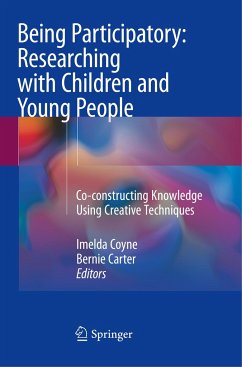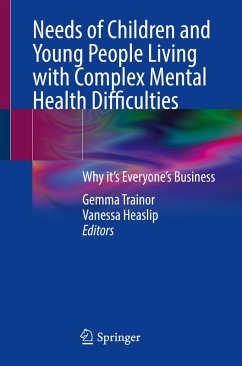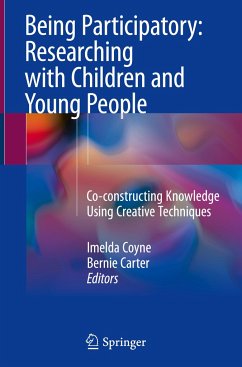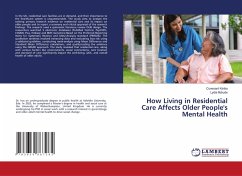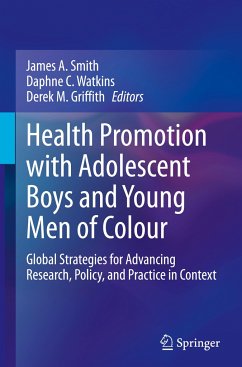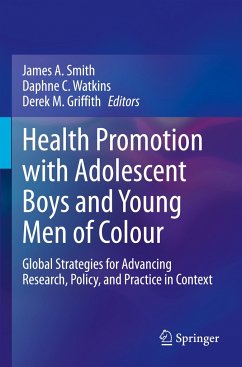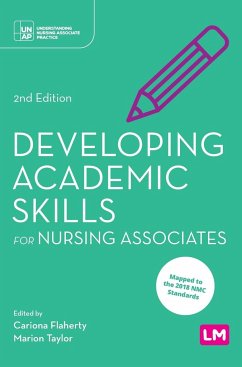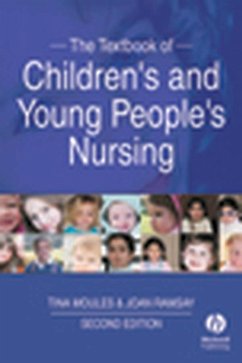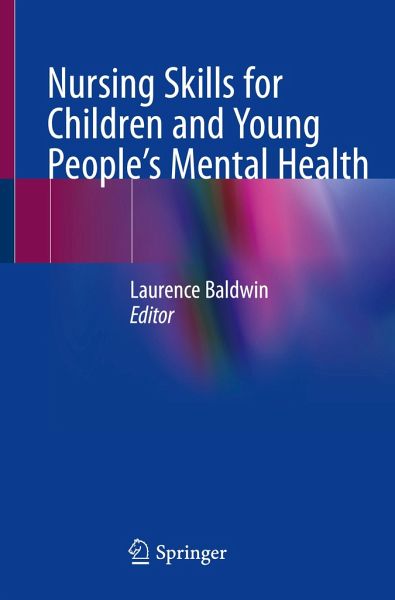
Nursing Skills for Children and Young People's Mental Health

PAYBACK Punkte
29 °P sammeln!
This book focuses on those nursing skills that are truly valued and needed by children and young people with mental health problems.Whilst other books have chiefly focused on mental health conditions and treatments, this book moves away from this formulaic approach and considers what children and youth themselves need most from health professionals. It shows why nursing skills are among the most precious values for patients. This focus on therapeutic relationships, establishing trust-based forms of nursing, and empowering children and young people to develop into healthy and resilient young ad...
This book focuses on those nursing skills that are truly valued and needed by children and young people with mental health problems.
Whilst other books have chiefly focused on mental health conditions and treatments, this book moves away from this formulaic approach and considers what children and youth themselves need most from health professionals. It shows why nursing skills are among the most precious values for patients. This focus on therapeutic relationships, establishing trust-based forms of nursing, and empowering children and young people to develop into healthy and resilient young adults has largely been neglected, despite the feedback from those who urgently need help but often struggle to find it, or are wary of seeking help and reluctant to engage.
This book focuses on the places where nurses encounter young people and seek to help them. It examines the role nurses play in specialist child and adolescent mental health settings (such as in-patient and community, as psychotherapists, and on self-harm teams) and where paediatrics nurses work with troubled young people (in emergency departments, paediatric wards and primary care). It also considers two specific areas, namely eating disorder services and consent-seeking, that could benefit from nursing skills that are currently undervalued, but are in fact invaluable.
Its focus on those skills that nurses already have, but may not be consciously using, will make this book uniquely appealing to all nurses who work with children and young people with mental health problems, regardless of the setting, and an essential guide for students and experienced professionals alike.
Whilst other books have chiefly focused on mental health conditions and treatments, this book moves away from this formulaic approach and considers what children and youth themselves need most from health professionals. It shows why nursing skills are among the most precious values for patients. This focus on therapeutic relationships, establishing trust-based forms of nursing, and empowering children and young people to develop into healthy and resilient young adults has largely been neglected, despite the feedback from those who urgently need help but often struggle to find it, or are wary of seeking help and reluctant to engage.
This book focuses on the places where nurses encounter young people and seek to help them. It examines the role nurses play in specialist child and adolescent mental health settings (such as in-patient and community, as psychotherapists, and on self-harm teams) and where paediatrics nurses work with troubled young people (in emergency departments, paediatric wards and primary care). It also considers two specific areas, namely eating disorder services and consent-seeking, that could benefit from nursing skills that are currently undervalued, but are in fact invaluable.
Its focus on those skills that nurses already have, but may not be consciously using, will make this book uniquely appealing to all nurses who work with children and young people with mental health problems, regardless of the setting, and an essential guide for students and experienced professionals alike.



